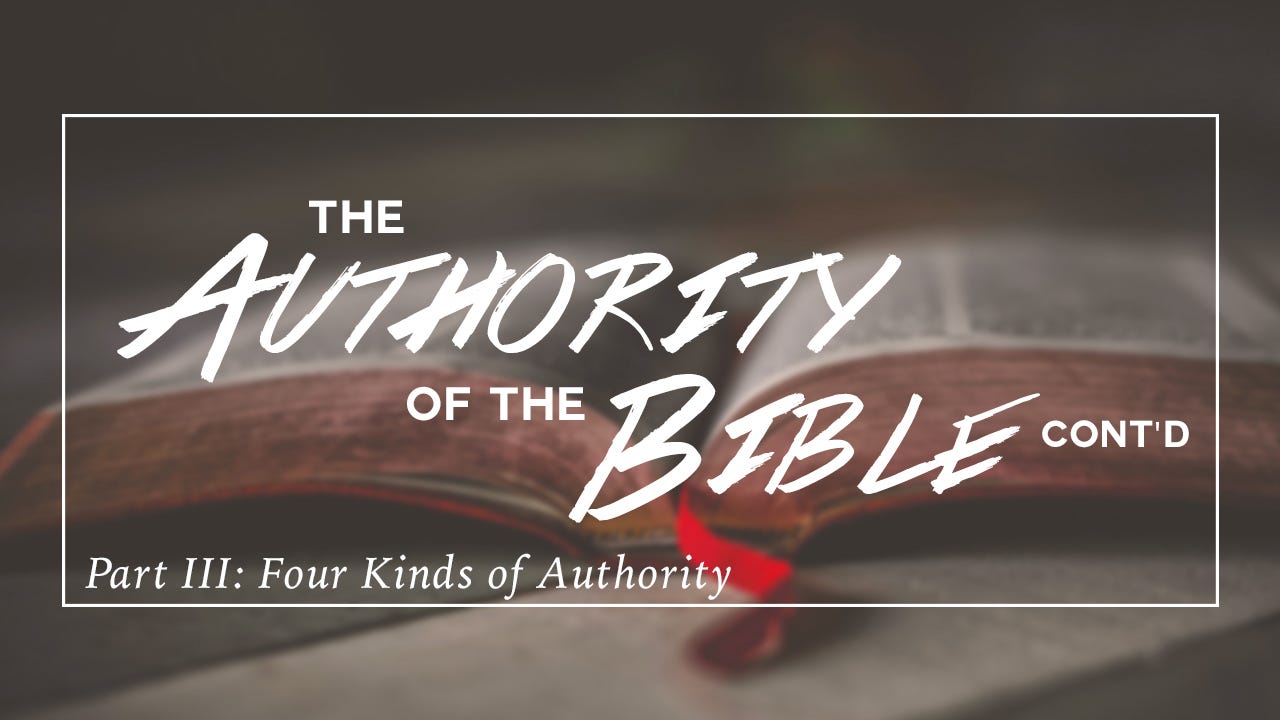Four Kinds of Authority
The Authority of the Bible, Part III: Imagining four ways we engage/experience authority.
(Still) Exploring the Idea of “Authority”
This series (read Part I here, Part II here) began when the hosts of the Desert Voices podcast asked me about my relationship to the “authority of the Bible.”
…




